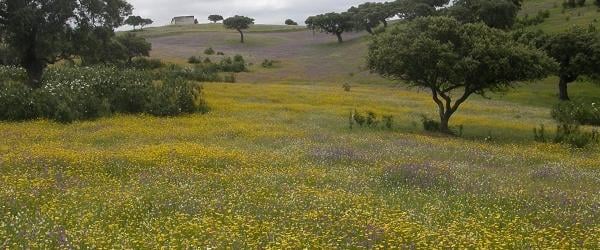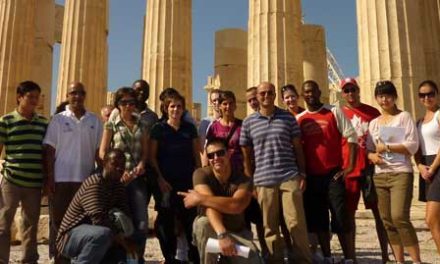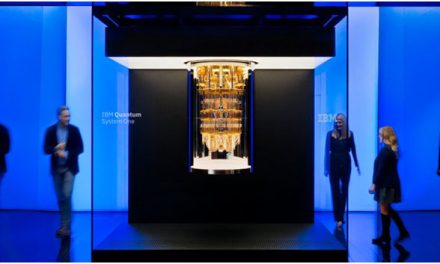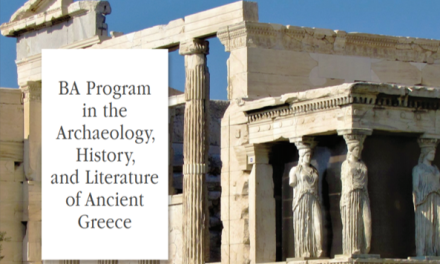The web portal Study in Greece is campaigning for the promotion and international visibility of Greek Universities and the comparative educational advantages of our country. In particular, the campaign focuses on the foreign language study programmes that Greek Universities offer to Greek and international students. The initiative is supported by the General Secretariat of Higher Education of the Ministry of Education and Religious Affairs and the General Secretariat for Greeks Abroad and Public Diplomacy of the Ministry for Foreign Affairs. In this context, a number of educational programmes and actions are presented in detail on a regular basis, such as undergraduate and postgraduate programmes, summer schools etc, to inform international students about the many foreign language options offered by Greek Universities.
Study in Greece interviewed George Fakotakis, Researcher, CIHEAM-MAICh, on the MSc Programmes offered by the CIHEAM Mediterranean Agronomic Institute of Chania (CIHEAM MAICh), on the programme’s content and what it has to offer to international students.
We would like you to tell us about the creation and the history of CIHEAM. Tell us a few things about the new university – its departments, its facilities.
Established in 1962, the International Centre for Advanced Mediterranean Agronomic Studies (CIHEAM) is a Mediterranean intergovernmental organisation composed of 13 Member States (Albania, Algeria, Egypt, France, Greece, Italy, Lebanon, Malta, Morocco, Portugal, Spain, Tunisia and Turkey).
It operates through its 4 Institutes based in Bari (Italy), Chania (Greece), Montpellier (France) and Zaragoza (Spain), and the Headquarters which is based in Paris.
 Since 1986, and as the 4th constituent institute of CIHEAM, MAICh pursues its three main complementary missions through post-graduate specialised education, networked research and facilitation of regional debate, focused in the fields of Business Economics and Management, Geoinformation in Environmental Management, Horticultural Genetics and Biotechnology, Food Quality and Chemistry of Natural Products, and Sustainable Agriculture. It has also established itself as an authority in Mediterranean agriculture, Food and Rural Development.
Since 1986, and as the 4th constituent institute of CIHEAM, MAICh pursues its three main complementary missions through post-graduate specialised education, networked research and facilitation of regional debate, focused in the fields of Business Economics and Management, Geoinformation in Environmental Management, Horticultural Genetics and Biotechnology, Food Quality and Chemistry of Natural Products, and Sustainable Agriculture. It has also established itself as an authority in Mediterranean agriculture, Food and Rural Development.
Our ambition is for our students to deepen their knowledge, critical understanding, applied skills, and capacity, to analyze and evaluate, as well as to implement advanced research, so that they are able to contribute towards specific key issues concerning Mediterranean agriculture, food systems, environment, rural development and other related topics. We believe that our MSc graduates maximise the return of investment not only for their own interests but also for the mutual benefit of their countries.
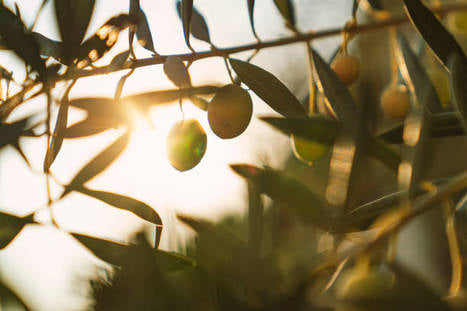 CIHEAM offers Master’s Degrees in some of the most vital fields of contemporary scientific research such as Biotechnology, Natural Products and Sustainable Agriculture. Could we argue that your Institute, along with the scientific research, also promotes ecological culture and environmental sensitivity?
CIHEAM offers Master’s Degrees in some of the most vital fields of contemporary scientific research such as Biotechnology, Natural Products and Sustainable Agriculture. Could we argue that your Institute, along with the scientific research, also promotes ecological culture and environmental sensitivity?
Increasing concern over environmental, biodiversity and food safety issues in the Mediterranean area have formed the basis for a Master of Science (M.Sc.) degree on “Sustainable Agriculture” at CIHEAM MAICh. Moreover one of the core objectives of the Department of GeoInformation in Environmental Management is the use of Geographical Information Systems and decision support systems to support environmental sustainability management.
Generally speaking, all academic, research and networking activities of CIHEAM – MAICh are in line with the core priorities and strategic agenda set by the organisation, focusing on the sustainable management of natural resources and waste eradication in order to promote food security, agroecology and better development of rural territories. Almost all activities of the Institute, including Master courses, expert training and capacity building, focus on exchanging information and establishing an interactive dialogue between all stakeholders and experts at the regional or international level, to contribute towards the promotion of agro-ecological practices, and strengthen environmental sensitivity.
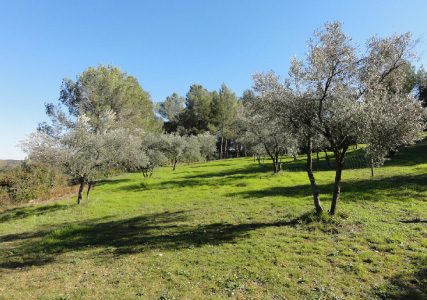 Given that all courses are taught in English, would you like to tell us which are the benefits offered to international students?
Given that all courses are taught in English, would you like to tell us which are the benefits offered to international students?
Many of our alumni are currently holding esteemed positions in academic institutes such as the Universities of: Nebraska-Lincoln, USA; Regina, CA; Ege, TR; Maastricht, NL; Reading, UK, etc. and/or research organisations, government management bodies, aid programmes, local authorities, as well as positions in the private sector. More than 300 former CIHEAM-MAICh MSc graduates have accomplished or are in the process of finishing a PhD degree on full scholarship in many universities all around the world, while many of them are now faculty members in prestigious universities in their countries and elsewhere.
Which has been the output of the Master’s degrees so far, especially in terms of attracting international students? Is it satisfactory?
Our Master’s degrees are addressed to CIHEAM-MAICh who seeks highly qualified students holding a relevant university degree with a minimum of four academic years (240 ECTS) and a very good command of the English language, who are committed and dedicated to develop their knowledge and become innovators in the academic and/or the entrepreneurial world. For every academic year, the institute receives more than 500 applications and hosts about 150 first- and second-year students at its campus. Our students are coming from more than 18 different Mediterranean countries.
Please tell us about this “Mediterranean cooperation”, within the framework of which the cultural dialogue between “neighbours” meets their common concerns about the challenges we face as countries within a rapidly changing environment.
Political dialogue and partnerships are at the heart of the CIHEAM’s mission to contribute to the establishment of prosperity and sustainable peace in the Mediterranean region. Moreover one of the key aims of the organisation is the establishment of a sustainable dialogue between Mediterranean countries on agricultural, food and rural issues in order to foster a common approach. CIHEAM Ministerial Meetings are organised every two years; collaborations with other Euro-Mediterranean organisations and stakeholders (FAO, INRA, UfM, etc.) are initiated by CIHEAM to establish a dialogue, create synergies and design strategies to contribute to common challenges of the Mediterranean.
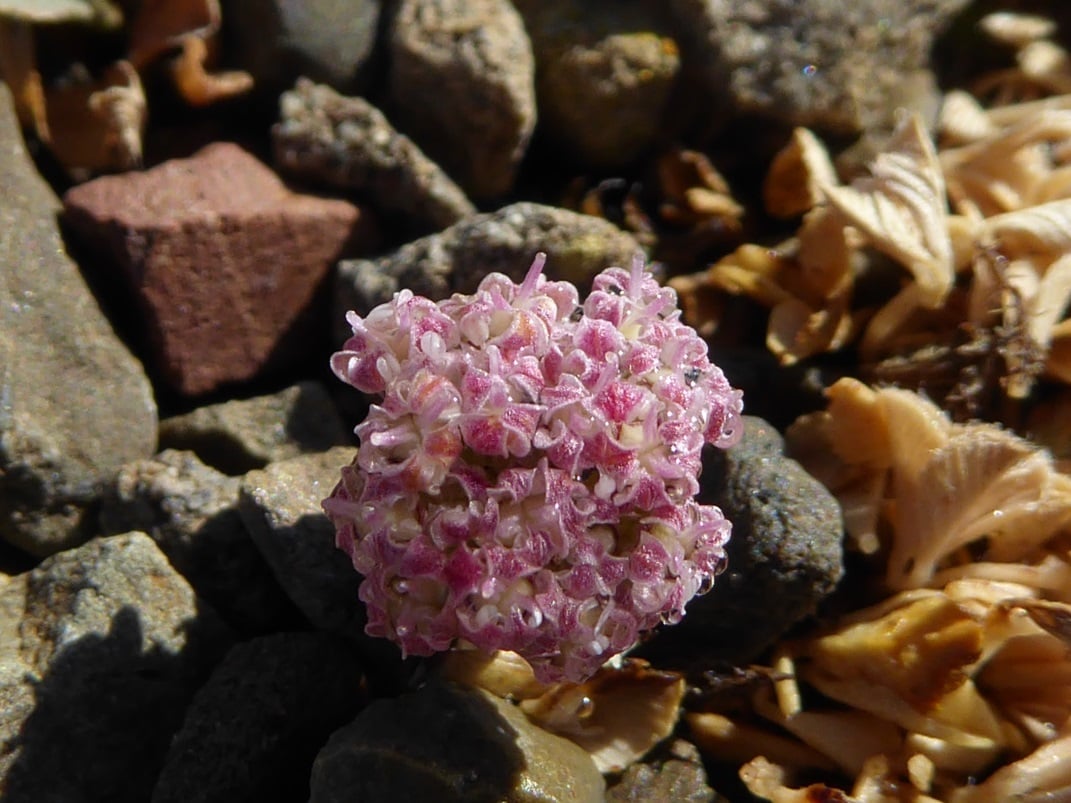 We would like some more information about the Master Thesis Prize and the MAICh students who have won it.
We would like some more information about the Master Thesis Prize and the MAICh students who have won it.
This Prize was established in 1994 to valorise the research work undertaken by CIHEAM students in the framework of their Master of Science, and to support the development of their scientific career. It is awarded every year by the Governing Board of the Organisation upon recommendation by its Advisory Board. The Prize for the CIHEAM Best MSc Thesis for 2015 was awarded to Mrs Emna Khanfir, a Tunisian student at CIHEAM-Chania, and now a PhD Student at Ecole Doctorale FSS Sfax; for 2018, the Prize was awarded to the Tunisian student Mr Mohamed Amine Hedoui, now a PhD Student at the University of Nebraska-Lincoln; and for 2020, the Prize was awarded to the Lebanese student Ms Elsa Chedid, now a PhD candidate at INRAE.
The city and the region of Chania are undoubtedly magnificent in terms of natural beauty and cultural importance. Does this pleasant environment attract students to study at CIHEAM MAICh?
Students’ studies are undoubtedly affected by the environment and their surroundings. Chania is a not only a beautiful town, but it also presents a historical crossroads of many different cultures, whose presence still emanates in its architecture and landmark monuments. Many buildings in the old town of Chania were used over the centuries by both Christian and Muslim rulers, which gives the town a multicultural aspect. In present times, Chania’s beauty and serenity, coupled with being a summer resort town, gives it a constant and busy vibe throughout all seasons of the year. This has helped to promote Chania as a highly desirable place to live and work, among professional travelers, digital nomads and the retired community from all over the world.
Does the Institute provide/organise Summer Schools and Study Abroad Programmes? Is there a tradition of academic tourism being established and developed?
Every year CIHEAM MAICh co-hosts Summer Schools, which focus on vocational training related to various academic fields for students from Europe. The International Conference Centre of MAICh which is affiliated to the Institute was established in 1990 and hosts very sophisticated and advanced conferences every year; it accommodates seminars, symposiums, meetings and presentations of academic interest, hosts, simultaneously or independently, exhibitions and poster sessions.
N.M. (Photo source: CIHEAM MAICh official website & official FB page)

